
Jinotega: The Highlands Gem of Nicaragua
Nestled in the Northern Highlands of Nicaragua, Jinotega is a city where natural beauty meets rich cultural heritage. Known as the City of Mists, Jinotega is surrounded by lush mountains and coffee plantations, offering a tranquil escape from the hustle and bustle of urban life. The climate is cooler here, providing a refreshing contrast to the tropical heat found in other parts of the country. In Jinotega, you can explore the verdant landscapes of the Apanas Lake and La Bastilla Nature Reserve. These natural attractions are perfect for hiking, bird-watching, and enjoying the serene beauty of the highlands. The city itself is dotted with charming colonial architecture and vibrant markets, where you can immerse yourself in the local culture and try traditional Nicaraguan dishes. A visit to Jinotega is not complete without a tour of its coffee farms. Known for producing some of the best coffee in the world, these farms offer guided tours that take you through the coffee-making process, from bean to cup. Whether you're a nature lover, a culture enthusiast, or a coffee aficionado, Jinotega has something to offer every traveler.
Local tips in Jinotega
- Bring warm clothing, as the highland climate can be cooler, especially in the evenings.
- Visit during the dry season, from November to April, for the best weather conditions and outdoor activities.
- Take a guided coffee tour to experience the full journey of Nicaraguan coffee from bean to cup.
- Explore the local markets to find unique crafts and taste traditional Nicaraguan foods.
- Hire a local guide for hiking trips to ensure you get the most out of the natural reserves.
Jinotega: The Highlands Gem of Nicaragua
Nestled in the Northern Highlands of Nicaragua, Jinotega is a city where natural beauty meets rich cultural heritage. Known as the City of Mists, Jinotega is surrounded by lush mountains and coffee plantations, offering a tranquil escape from the hustle and bustle of urban life. The climate is cooler here, providing a refreshing contrast to the tropical heat found in other parts of the country. In Jinotega, you can explore the verdant landscapes of the Apanas Lake and La Bastilla Nature Reserve. These natural attractions are perfect for hiking, bird-watching, and enjoying the serene beauty of the highlands. The city itself is dotted with charming colonial architecture and vibrant markets, where you can immerse yourself in the local culture and try traditional Nicaraguan dishes. A visit to Jinotega is not complete without a tour of its coffee farms. Known for producing some of the best coffee in the world, these farms offer guided tours that take you through the coffee-making process, from bean to cup. Whether you're a nature lover, a culture enthusiast, or a coffee aficionado, Jinotega has something to offer every traveler.
When is the best time to go to Jinotega?
Iconic landmarks you can’t miss
Mirador de Catarina
Discover the breathtaking views and rich cultural heritage at Mirador de Catarina, a must-visit observatory in Nicaragua's stunning landscape.
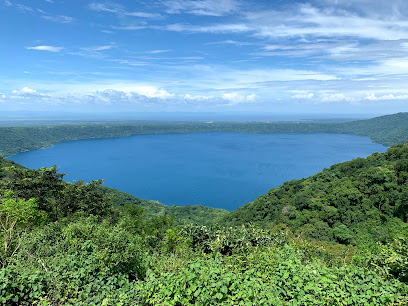
Parque Central de Granada
Experience the vibrant heart of Granada at Parque Central, where lush landscapes meet rich history and local culture.
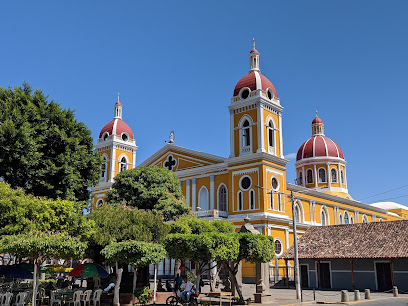
Selva Negra
Experience the tranquility and beauty of Selva Negra, a unique resort hotel and nature preserve in the heart of Matagalpa, Nicaragua.
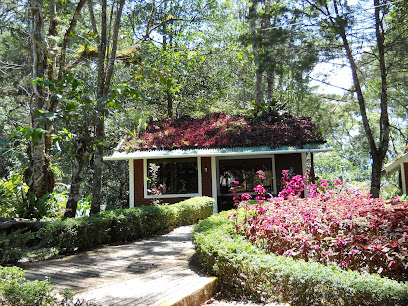
Mirador Calvary
Discover the breathtaking views and serene beauty of Mirador Calvary in Matagalpa, a perfect destination for nature lovers and adventurers.
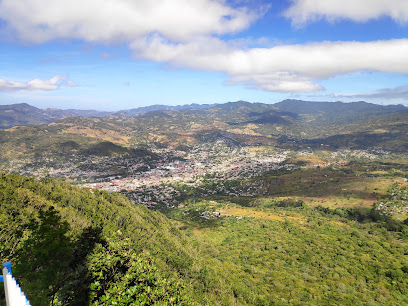
Natural Reserve Peñas Blancas
Experience the breathtaking beauty of Natural Reserve Peñas Blancas - a serene nature preserve filled with diverse wildlife and stunning landscapes in Nicaragua.
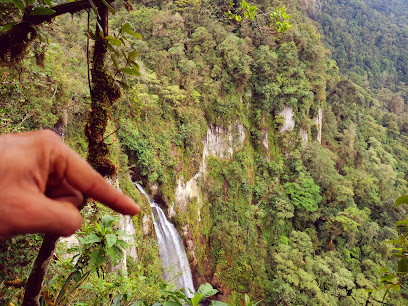
Peña de La Cruz
Discover the breathtaking vistas and serene atmosphere of Peña de La Cruz, a must-visit tourist attraction in the heart of Jinotega, Nicaragua.
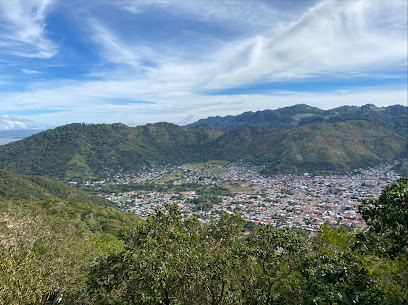
Canopy Tour La Brellera
Discover the thrill of zip-lining through lush canopies at Canopy Tour La Brellera in San Rafael del Norte, a unique blend of adventure and nature.
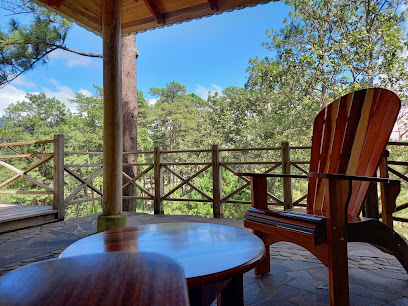
Hotel Café
Experience the charm of Jinotega at Hotel Café, your cozy retreat for relaxation and local culture in Nicaragua.
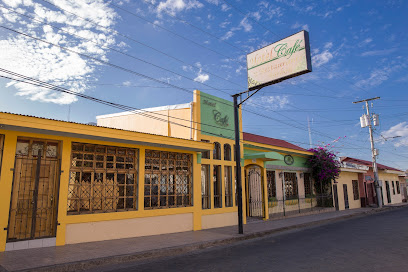
San Juan Bautista Cathedral
Explore the serene beauty of San Juan Bautista Cathedral in Jinotega, a stunning example of Nicaragua's rich cultural and spiritual heritage.
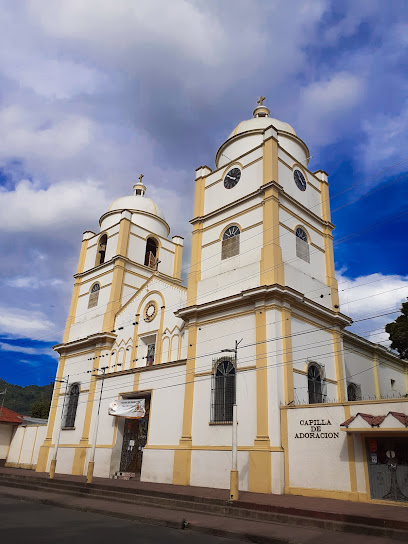
Hotel Sollentuna Hem
Experience the serene charm of Jinotega at Hotel Sollentuna Hem, where comfort meets Nicaraguan hospitality amidst breathtaking landscapes.

Macizo Peñas Blancas
Explore the stunning Macizo Peñas Blancas, a natural wonder in Nicaragua offering breathtaking landscapes, rich biodiversity, and cultural heritage.
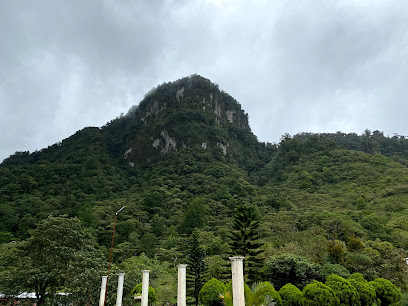
Eco Hostel La Fundadora
Experience eco-friendly hospitality at Eco Hostel La Fundadora, where comfort meets sustainability in the heart of Nicaragua's natural beauty.

Jinotega Nicaragua
Experience the serene beauty and rich culture of Jinotega, Nicaragua, a hidden gem perfect for homestays and authentic local experiences.
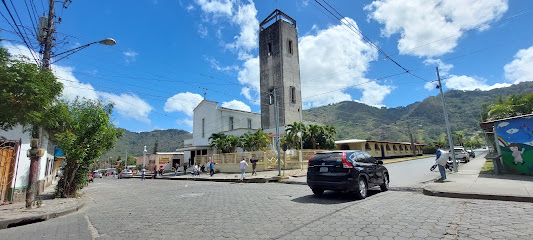
Monumento a la Virgen
Discover the spiritual and historical essence of Jinotega at the iconic Monumento a la Virgen, a beautiful landmark steeped in cultural significance.
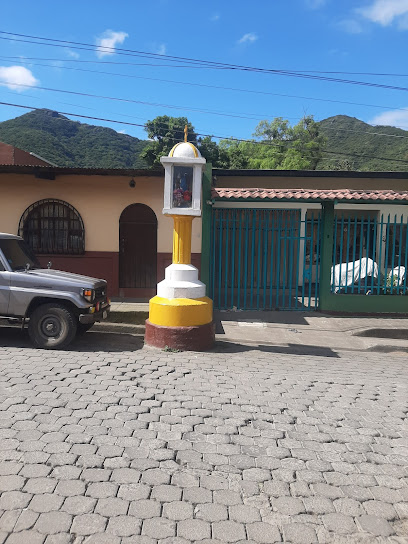
Cascada La Bujona
Experience the natural beauty and tranquility of Cascada La Bujona in Jinotega, Nicaragua, a perfect retreat for nature lovers and adventure seekers.
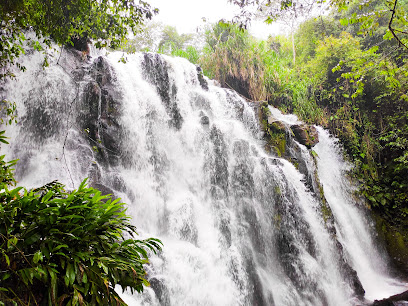
Unmissable attractions to see
Reserva Natural Tisey-La Estanzuela
Discover the stunning landscapes and diverse wildlife of Reserva Natural Tisey-La Estanzuela, a nature lover's paradise in Nicaragua.
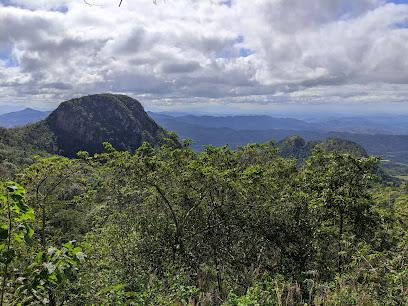
Mirador Calvary
Explore the breathtaking views of Matagalpa from Mirador Calvary, a scenic overlook that captures the beauty of Nicaragua's landscapes.
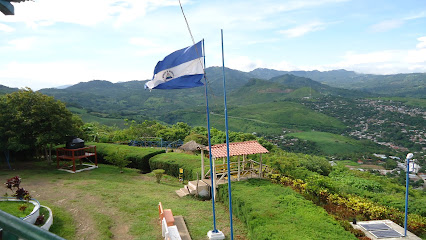
Selva Negra Ecolodge
Experience the tranquility of Selva Negra Ecolodge, where breathtaking nature meets delightful German cuisine in Nicaragua's lush highlands.
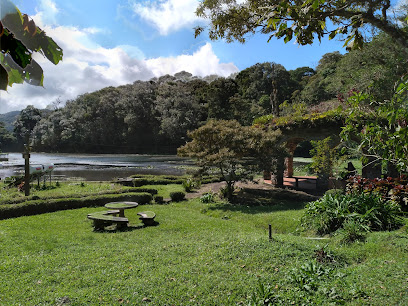
Peña de La Cruz
Discover the breathtaking views and rich cultural heritage at Peña de La Cruz in Jinotega, Nicaragua, a must-visit tourist attraction.
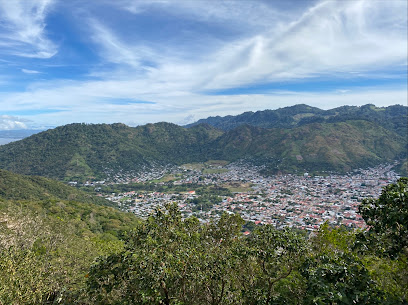
San Juan Bautista Cathedral
Discover the architectural beauty and spiritual essence of San Juan Bautista Cathedral in the heart of Jinotega, Nicaragua's cultural gem.
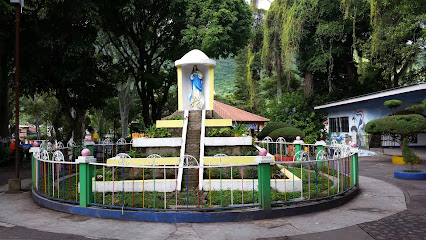
Cascada La Bujona
Discover the breathtaking beauty of Cascada La Bujona, a stunning waterfall nestled in the lush landscapes of Jinotega, Nicaragua, perfect for nature lovers.
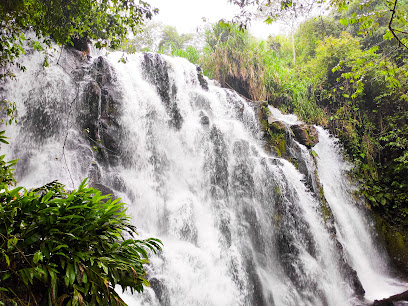
Essential places to dine
Soda El Tico
Experience authentic Nicaraguan cuisine at Soda El Tico in Jinotega—where every meal tells a story.
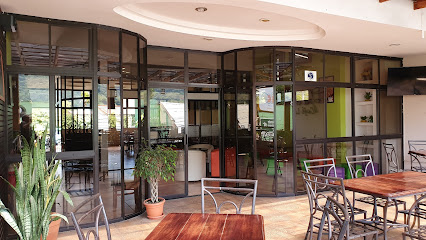
Comedor Chevy
Discover authentic Nicaraguan cuisine at Comedor Chevy in Jinotega – where flavor meets affordability in a cozy setting.
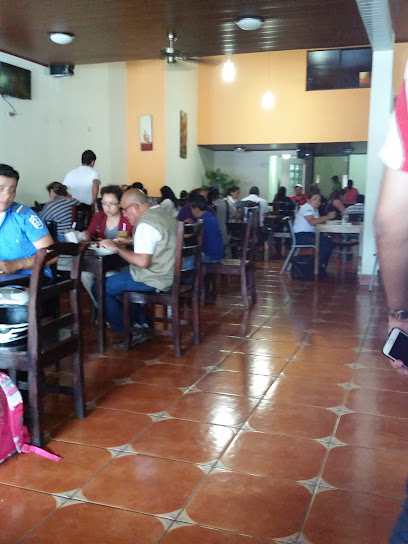
Restaurante Libertalia
Discover the culinary delights of Restaurante Libertalia in Jinotega, where authentic flavors meet warm hospitality.
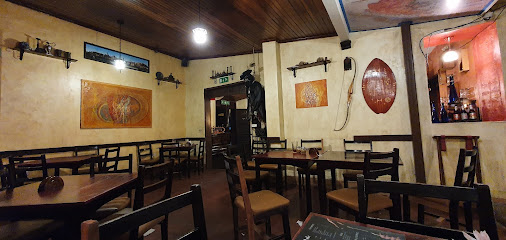
Restaurante El Olivo
Experience authentic Nicaraguan cuisine at Restaurante El Olivo in Jinotega – where every meal tells a story.
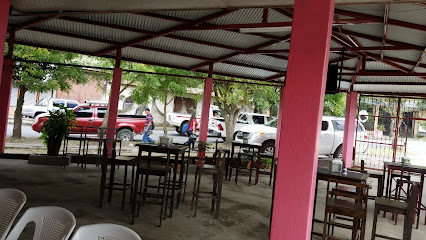
Taquería Mexicana La Diabla
Experience authentic Mexican cuisine at Taquería Mexicana La Diabla in Jinotega - where every bite tells a flavorful story.
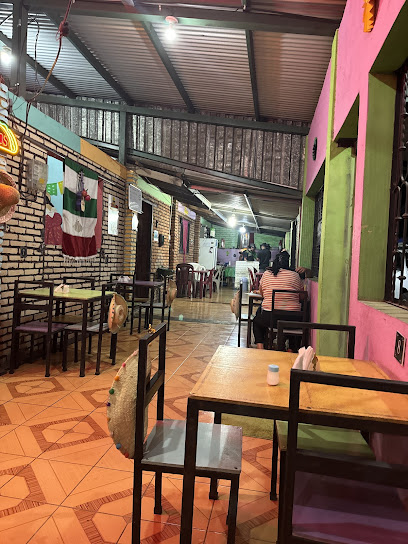
Restaurante Mi Rancho
Experience the essence of Nicaraguan cuisine at Restaurante Mi Rancho in Jinotega - where every dish tells a story.
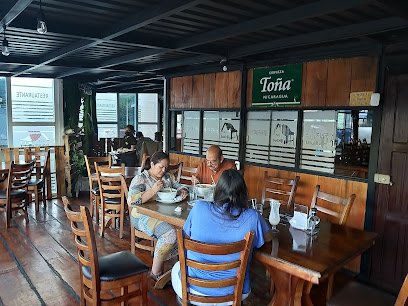
Rosquillas El Arbolito
Experience the authentic taste of Nicaragua at Rosquillas El Arbolito in Jinotega – where every bite tells a story.
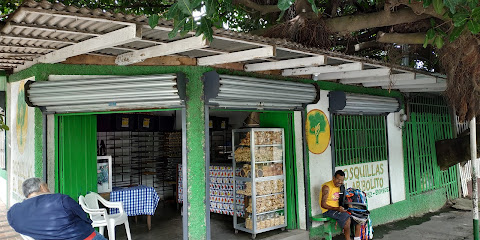
Bar y Restaurante Bulls
Experience authentic Nicaraguan flavors at Bar y Restaurante Bulls in Jinotega – where every meal is a celebration.
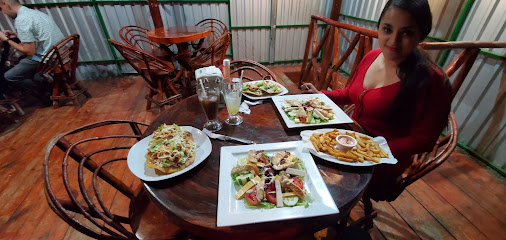
Rincón Jinotegano
Discover the authentic flavors of Nicaragua at Rincón Jinotegano – a culinary gem in Jinotega offering traditional dishes in a welcoming atmosphere.
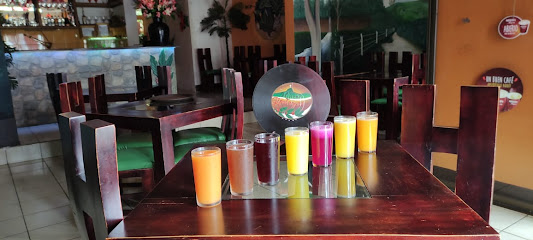
Restaurante Pa'picar_litos
Experience authentic Nicaraguan cuisine at Restaurante Pa'picar_litos in Jinotega—where every dish tells a story.
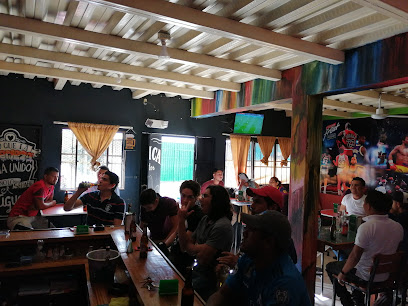
Restaurante Mezon Bon Appetit
Discover authentic Nicaraguan flavors at Restaurante Mezon Bon Appetit in Jinotega - a culinary gem offering delicious meals in a warm atmosphere.
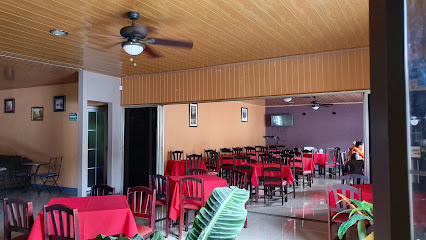
Frijolada Doña Juanita
Experience authentic Nicaraguan cuisine at Frijolada Doña Juanita in Jinotega - a culinary delight for every traveler.
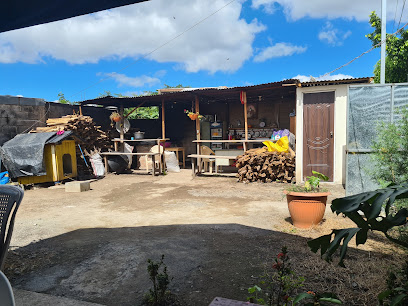
Restaurante :LA CASA DE LAS SOPAS
Experience authentic Nicaraguan cuisine at La Casa de las Sopas in Jinotega – a culinary haven for soup lovers.
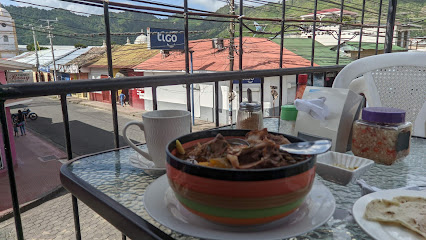
Hotel Y Restaurante Adams
Experience authentic Nicaraguan cuisine at Hotel Y Restaurante Adams in Jinotega – where flavors meet tradition.
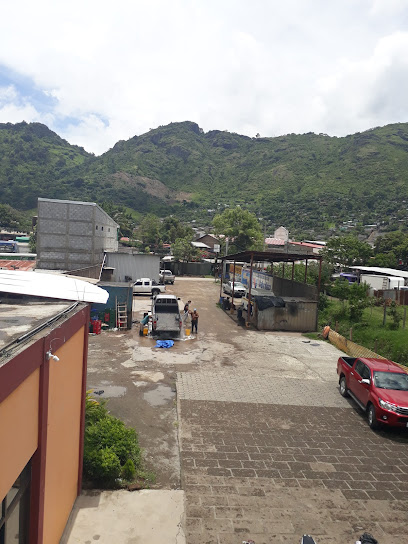
Quesillos San Francisco
Experience authentic Nicaraguan cuisine at Quesillos San Francisco, where every bite tells a story of local flavors and traditions.
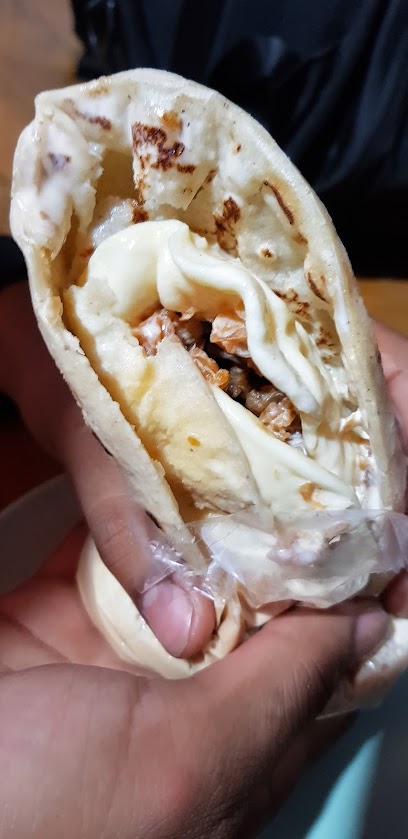
Markets, malls and hidden boutiques
TopShopping
Discover unique clothing styles at TopShopping in Jinotega, a vibrant store capturing the essence of Nicaraguan fashion and culture.

Tienda El Estilo
Explore colorful fashion at Tienda El Estilo in Jinotega, where local culture meets stylish clothing for every taste.
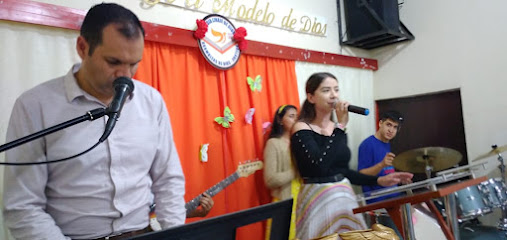
Closet de Cesia
Explore Closet de Cesia in Jinotega for unique clothing and accessories that celebrate Nicaraguan fashion and culture.

Variedades la Feria
Explore the vibrant fashion scene at Variedades la Feria in Jinotega, a clothing store offering unique styles and affordable prices for every tourist.

Tienda MARKAS
Explore authentic Nicaraguan fashion at Tienda MARKAS, where local craftsmanship meets modern style.
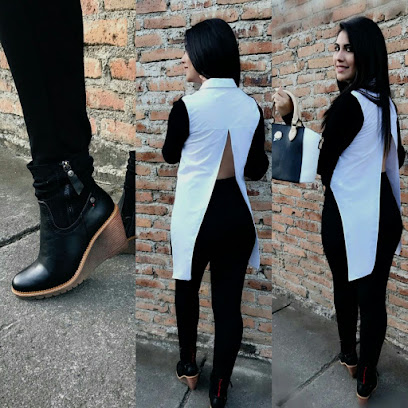
Tienda La Bonita Jinotega
Explore the vibrant local culture through fashion at Tienda La Bonita, Jinotega's go-to destination for traditional clothing and artisan craftsmanship.

The Magic Box Jinotega
Explore The Magic Box Jinotega for unique handcrafted gifts and local treasures that capture the spirit of Nicaragua.
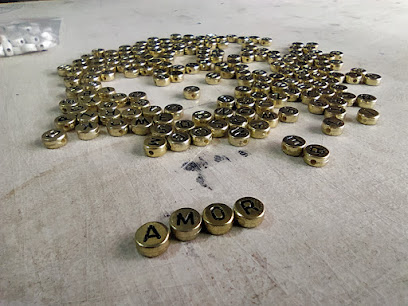
Children'chop
Explore a delightful array of children's clothing at Children'chop, where vibrant styles meet local craftsmanship in Jinotega, Nicaragua.

CruZel Shop
Discover unique clothing and local culture at CruZel Shop in Jinotega, where every piece reflects Nicaraguan artistry and style.

D Pasarela Boutique Jinotega
Discover unique fashion at D Pasarela Boutique in Jinotega, where local culture meets contemporary style in a charming shopping experience.
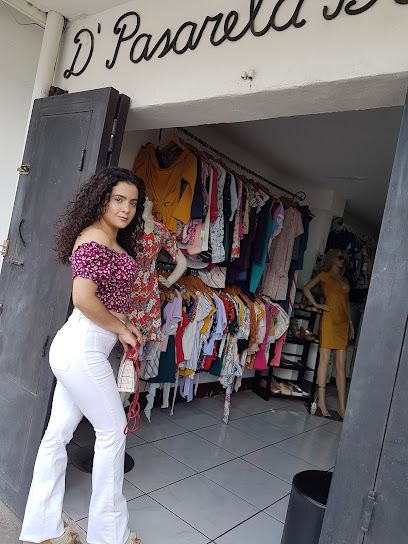
Akihanime Store
Explore Akihanime Store in Jinotega for a unique blend of fashionable accessories and immersive anime culture, perfect for every anime enthusiast.
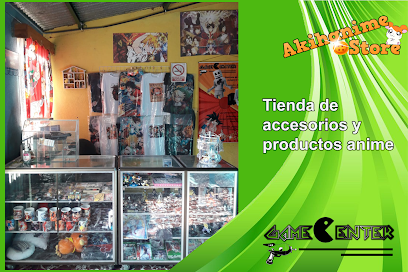
Littles Loves Boutique
Discover stylish baby clothing at Littles Loves Boutique in Jinotega, where quality meets cuteness for your little ones.

Akatsuki tienda anime
Explore Akatsuki Tienda Anime in Jinotega; a vibrant novelty store filled with collectibles and merchandise from beloved anime series.
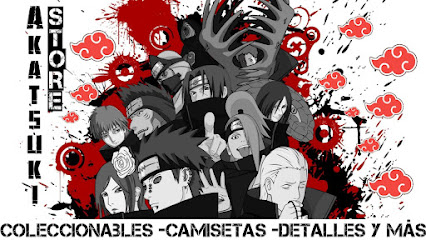
Tienda F&F
Explore Tienda F&F in Jinotega for exquisite formal wear that elevates your style for any occasion.
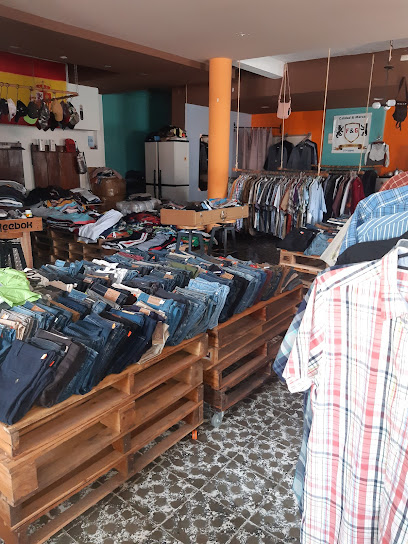
BiankastoreJn
Explore the vibrant shopping scene at BiankastoreJn in Jinotega, where trendy clothing meets the latest electronics in a welcoming atmosphere.

Essential bars & hidden hideouts
Bar y Restaurante Bulls
Experience the vibrant flavors of Jinotega at Bar y Restaurante Bulls, where grilled delights and a lively atmosphere await you.
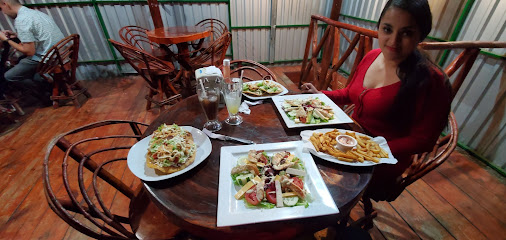
La Taberna V.I.P
Discover Jinotega's nightlife at La Taberna V.I.P, a vibrant bar with a lively atmosphere and delicious drinks, perfect for unwinding after a day of exploration.
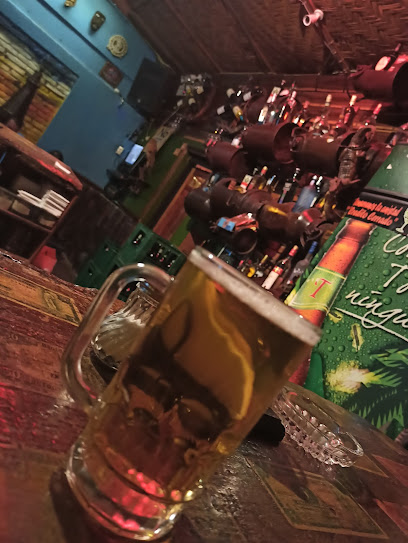
Jinocuba
Discover the vibrant nightlife of Jinotega at Jinocuba, where local flavors and a lively atmosphere await every visitor.
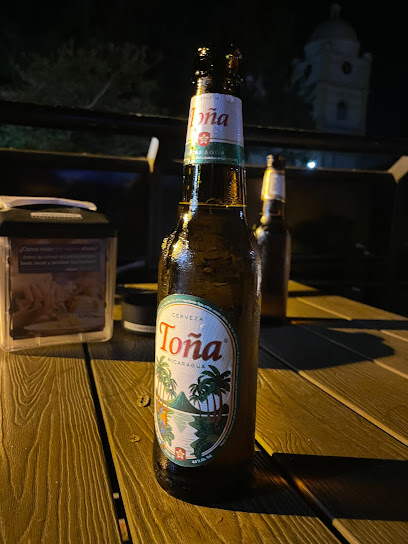
Forever Young Sport's Bar
Discover the vibrant atmosphere and exquisite tapas at Forever Young Sport's Bar in Jinotega, where local flavors come alive in every bite.
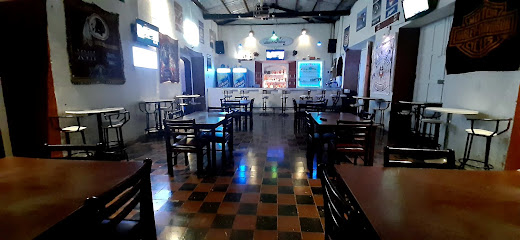
Bar El Escondido
Experience vibrant nightlife at Bar El Escondido in Jinotega, where local culture and delightful drinks create unforgettable moments.
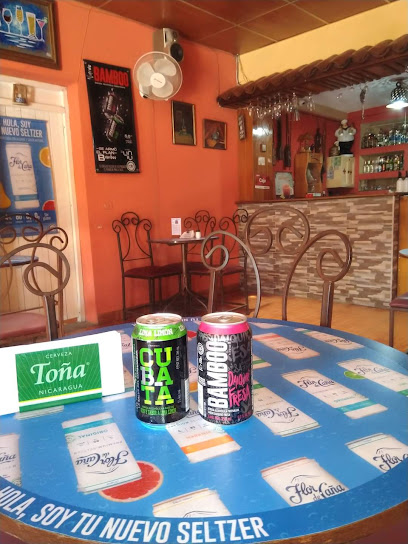
Mi Tierra
Experience the vibrant nightlife of Jinotega at Mi Tierra, a local bar offering a diverse selection of drinks and a welcoming atmosphere.
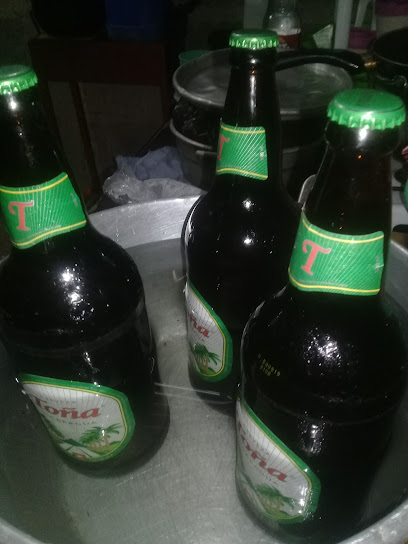
Bar y restaurante La Botija
Experience the vibrant culinary scene at Bar y Restaurante La Botija, where expertly grilled dishes and local flavors come together in a welcoming atmosphere.
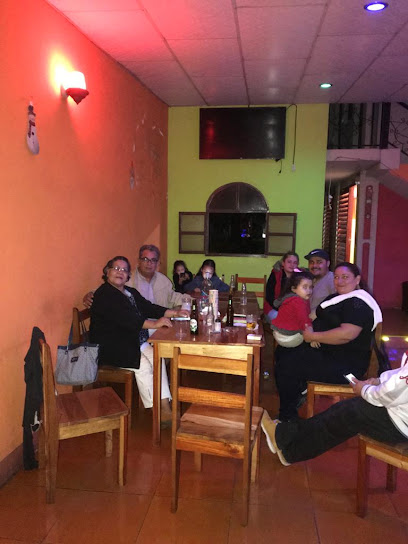
TaconSed
Experience the vibrant nightlife at TaconSed in Jinotega, where local drinks meet a cozy atmosphere and live music.
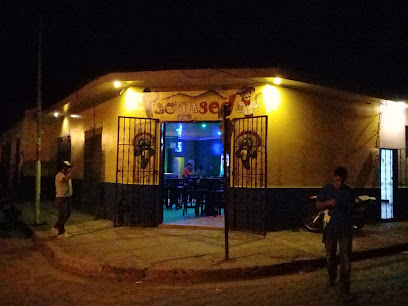
La Casa Blanca Lounge Bar
Discover the vibrant flavors and welcoming atmosphere of La Casa Blanca Lounge Bar, a must-visit grill and bar in Jinotega, Nicaragua.
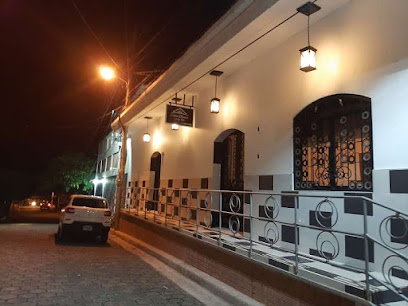
Pop Chill Out
Discover the vibrant flavors of Nicaragua at Pop Chill Out, the premier grill restaurant in Jinotega, where every meal is a celebration.
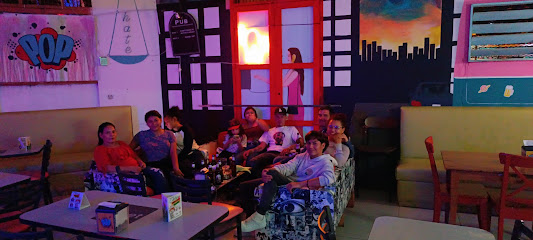
Licorería Fest Beers AM PM
Discover the lively Licorería Fest Beers AM PM in Jinotega, where craft beer meets vibrant nightlife and local culture.

Iguanas Bar
Experience the vibrant nightlife of Jinotega at Iguanas Bar, where karaoke, local drinks, and friendly faces come together for an unforgettable evening.
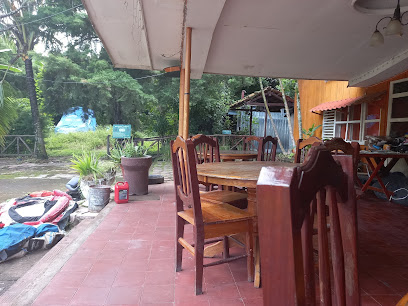
San Ramon Bar'S
Discover the vibrant atmosphere of San Ramon Bar'S in Jinotega, where traditional Nicaraguan drinks meet lively social interactions.
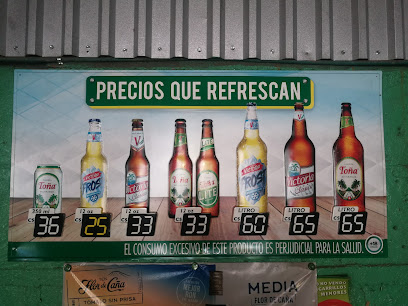
Zona VIP
Discover the vibrant nightlife at Zona VIP, a lively bar in Jinotega offering refreshing drinks and a welcoming atmosphere for all travelers.
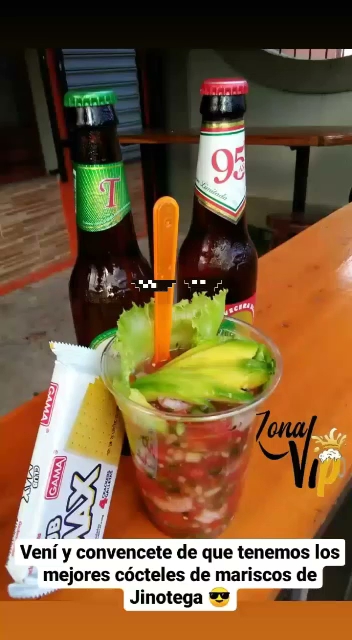
Local Phrases
-
- HelloBuenas
[Bweh-nahs] - GoodbyeAdiós
[Ah-dee-ohs] - YesSí
[See] - NoNo
[Noh] - Please/You're welcomePor favor/De nada
[Poor fah-bohr/Deh nah-dah] - Thank youGracias
[Grah-see-ahs] - Excuse me/SorryPerdón
[Pair-dohn] - How are you?¿Cómo estás?
[Koh-moh ehs-tahs] - Fine. And you?Bien. ¿Y tú?
[Byehn. Ee too] - Do you speak English?¿Hablas inglés?
[Ah-blahs een-glehs] - I don't understandNo entiendo
[Noh ehn-tee-ehn-doh]
- HelloBuenas
-
- I'd like to see the menu, pleaseMe gustaría ver el menú, por favor
[Meh goos-tah-ree-ah behr ehl meh-noo, poor fah-bohr] - I don't eat meatNo como carne
[Noh koh-moh kahr-neh] - Cheers!¡Salud!
[Sah-loohd] - I would like to pay, pleaseMe gustaría pagar, por favor
[Meh goos-tah-ree-ah pah-gahr, poor fah-bohr]
- I'd like to see the menu, pleaseMe gustaría ver el menú, por favor
-
- Help!¡Ayuda!
[Ah-yoo-dah] - Go away!¡Vete!
[Beh-teh] - Call the Police!¡Llama a la policía!
[Yah-mah ah lah poh-lee-see-ah] - Call a doctor!¡Llama a un médico!
[Yah-mah ah oon meh-dee-koh] - I'm lostEstoy perdido
[Ehs-toy pair-dee-doh] - I'm illEstoy enfermo
[Ehs-toy ehn-fehr-moh]
- Help!¡Ayuda!
-
- I'd like to buy...Me gustaría comprar...
[Meh goos-tah-ree-ah kohm-prahr...] - I'm just lookingSolo estoy mirando
[So-loh ehs-toy mee-rahn-doh] - How much is it?¿Cuánto cuesta?
[Kwahn-toh kwehs-tah] - That's too expensiveEsto es muy caro
[Ehs-toh ehs mwee kah-roh] - Can you lower the price?¿Puedes bajar el precio?
[Pweh-dehs bah-hahr ehl pree-syoh]
- I'd like to buy...Me gustaría comprar...
-
- What time is it?¿Qué hora es?
[Keh oh-rah ehs] - It's one o'clockEs la una
[Ehs lah oo-nah] - Half past (10)Media (10)
[Meh-dee-ah (diez)] - MorningMañana
[Mah-nyah-nah] - AfternoonTarde
[Tahr-deh] - EveningNoche
[Noh-cheh] - YesterdayAyer
[Ah-yehr] - TodayHoy
[Oy] - TomorrowMañana
[Mah-nyah-nah] - 1Uno
[Oo-noh] - 2Dos
[Dohs] - 3Tres
[Tres] - 4Cuatro
[Kwah-troh] - 5Cinco
[Seeng-koh] - 6Seis
[Says] - 7Siete
[Syeh-teh] - 8Ocho
[Oh-choh] - 9Nueve
[Nweh-veh] - 10Diez
[Diez]
- What time is it?¿Qué hora es?
-
- Where's a/the...?¿Dónde está el/la...?
[Dohn-deh ehs-tah ehl/lah] - What's the address?¿Cuál es la dirección?
[Kwahl ehs lah dee-rehk-syohn] - Can you show me (on the map)?¿Puedes mostrarme (en el mapa)?
[Pweh-dehs mohs-trar-meh (ehn ehl mah-pah)] - When's the next (bus)?¿Cuándo es el próximo (autobús)?
[Kwahn-doh ehs ehl proh-see-moh (ow-toh-boos)] - A ticket (to ....)Un boleto (para ....)
[Oon boh-leh-toh (pah-rah)]
- Where's a/the...?¿Dónde está el/la...?
History of Jinotega
-
Jinotega, nestled in the northern highlands of Nicaragua, was originally inhabited by indigenous groups such as the Matagalpa people. These early inhabitants lived in harmony with nature, cultivating the fertile land and developing a rich cultural heritage that included intricate pottery and textiles.
-
The Spanish arrived in the 16th century, bringing significant changes to Jinotega. The colonization process led to the establishment of missions and the introduction of Christianity. The indigenous population faced upheaval as Spanish settlers imposed new social and economic structures.
-
By the late 19th and early 20th centuries, Jinotega became known as the 'City of Mists' and emerged as a crucial center for coffee production in Nicaragua. The fertile volcanic soil and favorable climate conditions contributed to the growth of expansive coffee plantations, shaping the local economy and culture.
-
Jinotega played a significant role during the Sandinista Revolution in the late 1970s and early 1980s. The city and surrounding regions were sites of intense guerrilla warfare between the Sandinista National Liberation Front (FSLN) and the Somoza dictatorship's National Guard. The revolution brought profound social and political changes to the area.
-
Following the triumph of the Sandinista movement and the end of significant conflict, Jinotega underwent a period of reconstruction and development. Efforts to improve infrastructure, education, and healthcare were implemented, though the region continued to face challenges related to economic stability and development.
-
Today, Jinotega is known for its stunning natural landscapes, including cloud forests, coffee plantations, and scenic mountain views. The city has become a popular destination for ecotourism, attracting visitors with its rich history, vibrant culture, and outdoor activities. Local festivals, traditional crafts, and a growing emphasis on sustainable tourism contribute to the unique charm of Jinotega.
Jinotega Essentials
-
Jinotega is located in the northern highlands of Nicaragua. The nearest major airport is Augusto C. Sandino International Airport in Managua, approximately 140 kilometers away. From Managua, you can take a bus from the Mayoreo Bus Terminal, which offers several daily departures to Jinotega. The journey typically takes around 3 to 4 hours by road. Alternatively, you can rent a car or hire a private taxi for a more comfortable and flexible travel experience.
-
Once in Jinotega, local transportation options include taxis, which are readily available and relatively inexpensive. There are also local buses and minibuses (known as 'colectivos') that connect various parts of the city and nearby towns. For exploring the surrounding countryside, renting a car is a convenient option. Bicycles can also be rented for a more eco-friendly way to explore the city and its beautiful surroundings.
-
The official currency in Nicaragua is the Nicaraguan Córdoba (NIO). Credit cards are accepted in most hotels, larger restaurants, and shops, but it is advisable to carry cash, especially for smaller establishments and markets. ATMs are available in Jinotega, but it is a good idea to have some cash on hand before arriving, particularly if traveling to more remote areas.
-
Jinotega is generally considered a safe destination for tourists. However, it is advisable to take standard precautions. Avoid walking alone at night in unfamiliar areas and be vigilant with your belongings in crowded places such as markets. Some areas on the outskirts of the city have higher crime rates, so it’s best to stay in well-populated and well-lit areas. Always be cautious and aware of your surroundings.
-
In case of emergency, dial 118 for police, 128 for medical emergencies, and 115 for the fire department. Jinotega has a local police station and medical facilities including a hospital. It is recommended to have travel insurance that covers medical emergencies. For minor health issues, there are pharmacies in the city where you can purchase over-the-counter medications.
-
Fashion: Do dress modestly, especially when visiting religious sites. Avoid wearing revealing clothing. Religion: Do respect local customs and traditions. Always be respectful when visiting churches and other religious sites. Public Transport: Do be respectful and courteous to other passengers. Don’t eat or drink on public transport. Greetings: Do greet people with a handshake or a friendly 'Buenas' (Good day). Eating & Drinking: Do try local dishes and beverages. Don’t refuse food or drink offerings, as it is considered impolite.
-
To experience Jinotega like a local, visit the local markets where you can buy fresh produce and traditional Nicaraguan goods. Engage with locals, as they are often friendly and willing to share stories about the city’s history and culture. Don’t miss visiting the Reserva Natural Cerro Datanlí-El Diablo for a unique nature experience. For a taste of local coffee culture, visit one of the many coffee farms ('fincas') in the area, where you can learn about coffee production and enjoy fresh brews.
Trending Landmark in Jinotega
-
Mirador de Catarina
-
Parque Central de Granada
-
Selva Negra
-
Mirador Calvary
-
Natural Reserve Peñas Blancas
-
Peña de La Cruz
-
Canopy Tour La Brellera
-
Hotel Café
-
San Juan Bautista Cathedral
-
Hotel Sollentuna Hem
-
Macizo Peñas Blancas
-
Eco Hostel La Fundadora
-
Jinotega Nicaragua
-
Monumento a la Virgen
-
Cascada La Bujona
Nearby Cities to Jinotega
-
Things To Do in Managua
-
Things To Do in Masaya
-
Things To Do in Granada
-
Things To Do in Tegucigalpa
-
Things To Do in Ometepe
-
Things To Do in Rivas
-
Things To Do in San Juan del Sur
-
Things To Do in San Miguel
-
Things To Do in Liberia
-
Things To Do in Playa Flamingo
-
Things To Do in Guanacaste
-
Things To Do in La Ceiba
-
Things To Do in Tamarindo
-
Things To Do in Gracias
-
Things To Do in La Fortuna





